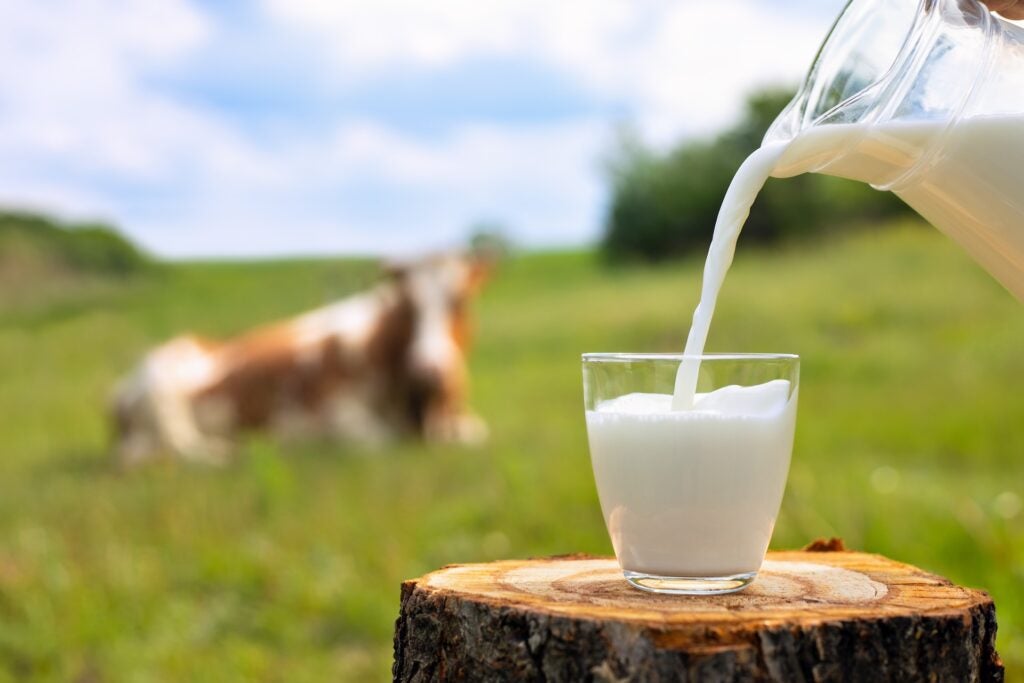- PoopMates
- Posts
- 🥛 The Ultimate Guide to Dairy: Types, Benefits, and Best Choices for Lactose Intolerance 💩
🥛 The Ultimate Guide to Dairy: Types, Benefits, and Best Choices for Lactose Intolerance 💩
From A2 milk to kefir, explore the health perks of dairy and lactose-friendly options in our guide to the best choices for dairy products.

GM! We hope you had a great thanksgiving! We also hope you’re reading today’s edition while dropping the monster deuce from all of the food that was consumed yesterday 😤. Well get comfortable, because today we are diving into a fun topic that many encounter on a daily basis and for some of you, may result in some pretty gnarly 💩s : dairy.

🥛 DAIRY DONE RIGHT: FINDING THE BEST FIT FOR YOUR HEALTH 🐮

Dairy comes in a wide variety of forms, each with unique nutritional benefits and digestibility. From traditional store-bought milk to raw options and specialized products like A2 milk and goat dairy, there’s a lot to explore. Here’s a guide to understanding the types you’ll encounter, benefits, and best choices, especially if you're lactose-intolerant.
Lactose Intolerance: Why It Happens and How to Navigate It
Lactose intolerance occurs when the body lacks sufficient lactase, the enzyme needed to break down lactose in dairy. It’s estimated that around 65% of the world’s population is lactose intolerant however, those suffering may not have to avoid it entirely.
1. Common Store-Bought Milk 🥛
Most of the milk you encounter, and probably all of the milk at your local grocery store is pasteurized and homogenized, providing some essential nutrients like calcium, vitamin D, and protein. Most store bought milk is also likely A1 milk, which can be harder for some to digest - more on this later.
Pasteurized milk is heat treated to kill harmful pathogens and bacteria, but the downside is that beneficial bacteria is killed as well.
Homogenized milk is pressure treated to break down the fats, creating a smoother consistency and texture. In non-homogenized milk, you will notice that the fat rises and settles at the top - this is heavy/whipping cream!
2. Goat Milk 🐐
Easier Digestion: Goat milk’s smaller fat globules and different protein structure make it more digestible. Its A2 protein composition is often better tolerated by those with sensitivity to cow's milk.
High Nutrient Density: Goat milk provides similar levels of calcium and potassium as cow's milk, with slightly higher levels of magnesium and vitamin A.
5. Yogurt
Probiotic Benefits: Yogurt is made by fermenting milk, and varieties with live and active cultures can aid digestion and offer immune support. The probiotics help break down lactose, so even those with lactose intolerance might find yogurt tolerable.
Greek vs. Traditional Yogurt: Greek yogurt is strained, providing a thicker texture and higher protein content as well as less lactose than traditional yogurt. It’s ideal for those seeking more protein with minimal lactose.
4. Kefir
A Probiotic Powerhouse: Kefir is similar to milk but is fermented with yeast in addition to bacteria cultures. Known for its tangy taste and effervescent texture (aka the champagne of dairy), kefir is a dairy product even more rich in probiotics than yogurt, and is great for supporting gut health.
Lower Lactose Content: Kefir is naturally low in lactose due to fermentation, making it a good option for those with lactose intolerance.
6. Cheese 🧀
Hard Cheeses: Hard cheeses like Parmesan, cheddar, and gouda are rich in nutrients and have reduced lactose due to aging, which makes them easier to digest for people with lactose sensitivity.
Soft Cheeses: While softer cheeses like cottage, feta, and mozzarella contain more lactose, varieties like goat cheese often contain A2 protein, which can be easier on the stomach. Goat cheese also has a slightly different fat profile, supporting easier digestion.
Raw Dairy & A2 Varieties
Raw dairy is certainly having its moment, and for good reasons. Raw milk enthusiasts argue that unpasteurized milk retains beneficial enzymes and probiotics lost in processing. While raw milk does carry risk of bacterial contamination, it is greatly reduced with proper animal care and living conditions. When safely sourced, it offers much more nutritional benefits than pasteurized dairy in addition to digestive enzymes that help break down lactose, potentially easing digestion for some lactose-sensitive individuals.
A2 dairy comes from certain cows with the A2A2 gene. These cows produce milk that is primarily composed of the A2 beta-casein protein which is considered gentler on the digestive system. This is true with goat and sheep’s milk as well. Most store-bought milk comes from cows with the A1A2 gene and is made up of primarily A1 beta-casein proteins. Historically, almost all milk came from A2A2 cows and now it’s the other way around with A1 cows dominating the shelves.
Could pasteurization and the switch from A2 to A1 dairy be the major factors contributing the rise in lactose intolerance? 🤔 We can’t be certain, but one thing is for sure - you can try these varieties for yourself and see how your body reacts. So, next time you’re at the grocery store, carefully read the labels of the dairy products you buy and look for raw and/or A2 varieties for the gut healthy and friendly options! Your toilet is going to thank you for it 😉.

💩 SH!TTY MEMEZ 🤣




Lastly, watch out for our mobile app hitting the iOS and Android app stores in the coming weeks!
That’s all for today, folks. We hope you enjoyed it. Now go, fertilize the Earth! The planet needs you.
DISCLAIMER: The content provided in this newsletter is for informational purposes only and is not intended as a substitute for professional medical advice, diagnosis, or treatment. If you are experiencing a medical emergency, call your doctor or dial 911 immediately.